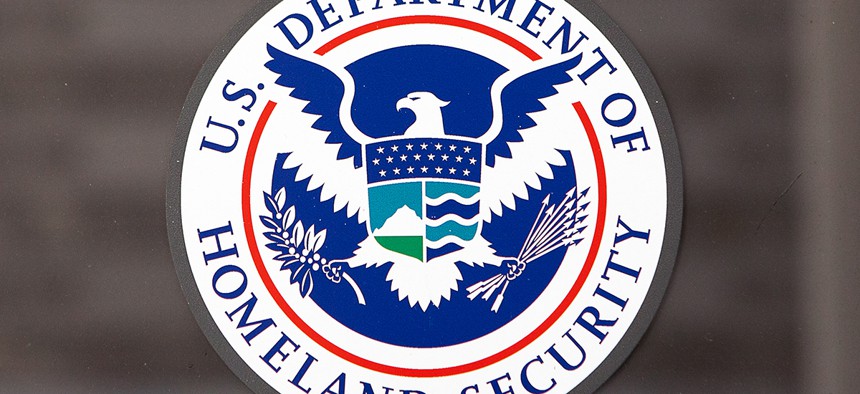DHS Says: No Need for $675M Cyber Contract. We’ve Already Got It under Control.

Mark Van Scyoc/Shutterstock.com
Industry groups were miffed after DHS canceled the contract.
The Department of Homeland Security says it will not resuscitate a more than half-billion dollar cyber contract it abandoned earlier this month after a 2-year competition.
A federal contracting association representing would-be project participants had voiced frustration about the secrecy surrounding the Feb. 8 cancellation that, according to its members, came out of the blue.
DHS offices already can buy the same help through other contracts that would have been offered under the now-cancelled Cyber Centric Mission Support Services, a DHS official told Nextgov on Friday.
Homeland Security “has determined that the services currently required to support its cybersecurity initiatives are currently available through several other contracts,” the official, who spoke on background, added.
The services that would have been centralized span myriad facets of program support, including clerical work and project management, as well as scientific, engineering and technical assistance.
DHS in December 2013 began accepting bids on the 5-year, $675 million project, which ultimately gained the interest of some 160 parties. Proposals were due in February 2014.
Responding to assertions that companies deserved more transparency into the decision-making, the official said "the department’s determination was based on changes to its requirements," following a late-stage review of the contract.
In a Feb. 19 letter to DHS officials, the Professional Services Council contracting association said each team of contenders had spent hundreds of thousands of dollars preparing pitches.
The DHS chief procurement officer reassessed the solicitation after industry associations and bidders questioned the practicality of the contract, the official said. One inquiry came during a December 2015 industry day, the official added. The review's conclusion was that department needs had significantly evolved and changed since 2013 and current needs are now being handled by other contractors.
In addition, the White House Office of Federal Procurement Policy had directed all senior executives involved in contracting to make sure federal purchases are "efficient and effective," by among other things, "continually assessing pending solicitations and contracts to guard against duplication," the official said.
The department has and will continue to share as much information as possible with the firms that submitted a project proposal, the official said. The DHS chief procurement officer held a conference call with bidders Feb. 11, three days after ending the competition. A webinar is slated for March to provide general feedback on the proposals that were evaluated.
"While the offerors have expressed disappointment with the cancellation decision, several have expressed appreciation for the department’s thoughtfulness and approach to communicating with them following the decision," the official said.
Companies who had wanted a piece of the now-terminated work are encouraged to monitor the department's Acquisition Planning Forecast System, where "new opportunities are posted to include those requirements that were initially planned" for the cyber contract, the official added.
(Image via Mark Van Scyoc/Shutterstock.com)






